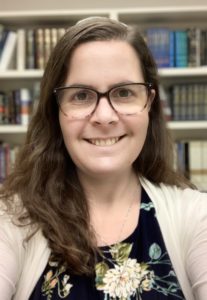
By Rabbi Jennifer R. Greenspan
One not so special morning, Pharaoh’s daughter wakes up in the morning, ready for her daily bath. I imagine her grabbing a simple linen robe and walking to the river, surrounded by her maidservants.
“The daughter of Pharaoh came down to bathe in the Nile, while her maidens walked along the Nile. She spied the basket among the reeds and sent her amatah to fetch it.” (Exodus 2:5)
I have purposely left the word “amatah,” as it becomes the subject of debate between two rabbis of the Talmud (BT Sota 12b). One reads it as the typical meaning of the word: maidservant. Someone who is always with her, there to support her and whom she trusts.
But the other suggests that here, amatah means her own forearm. He interprets that based on the word ama, the word that is also the unit of measure that is the length from an elbow to a fingertip. Given that the Torah says that she sent her ama, this interpretation suggests that a miracle occurred and her arms actually stretched out to reach the basket herself, without any help.
This, to me, is the crux of the difference between the two interpretations: Did she act independently, or did she ask for help? If alone, why? Perhaps she feels her position as daughter of the sovereign means that she cannot show any weakness or reliance on others. Perhaps she knows what is in that basket, and is afraid of what will happen if the others in her life see that she intends to save an Israelite baby, to become a vital piece of the story that leads to the freedom of a people suffering under her father’s rule. Perhaps she simply has a fierce independent streak that keeps her from ever asking for help, or perhaps she doesn’t want to be a burden on those she’d ask — afterall, her maidens already have so many duties they attend to for her!
It would be so much simpler if her own arms stretched beyond their usual length, no need to bother or involve anyone else. A miracle is so much easier.
Far too often, especially when we are faced with challenges, whether as small as reaching something on the top shelf or whatever much, much larger challenges might come our way, it is tempting to wait around for magic and miracles rather than admit that we can’t do everything alone.
There are so many reasons we don’t ask for help. Embarrassment. A feeling that we “should” be able to do it alone. Fear of others’ reactions. Not wanting to take the time to ask, or worry that we’d be a burden if we did.
So instead, we wait for a miracle.
We cannot give into wishful thinking. We must remember to reach out to one another, and to help one another. We need to ask for help, and we need to give it.
As a people, we face one of the most daunting challenges our generation has yet known. And it won’t be solved by us wishing success into existence. Progress will be made when we turn to those closest to us, and ask for help. When we are vulnerable enough to admit that we are human, and when we can set aside stubborn independence to be together.
Imagining the daughter of Pharaoh to have arms that can stretch to miraculous lengths misses the real miracle in this story. The miracle of a brave woman, a royal willing to rely on the support of others.
The miracle of the other human beings God has place in our lives.
Rabbi Jennifer R. Greenspan is the senior rabbi of Beth Shalom Congregation in Columbia and is a graduate of the Ziegler School of Rabbinic Studies in Los Angeles.





